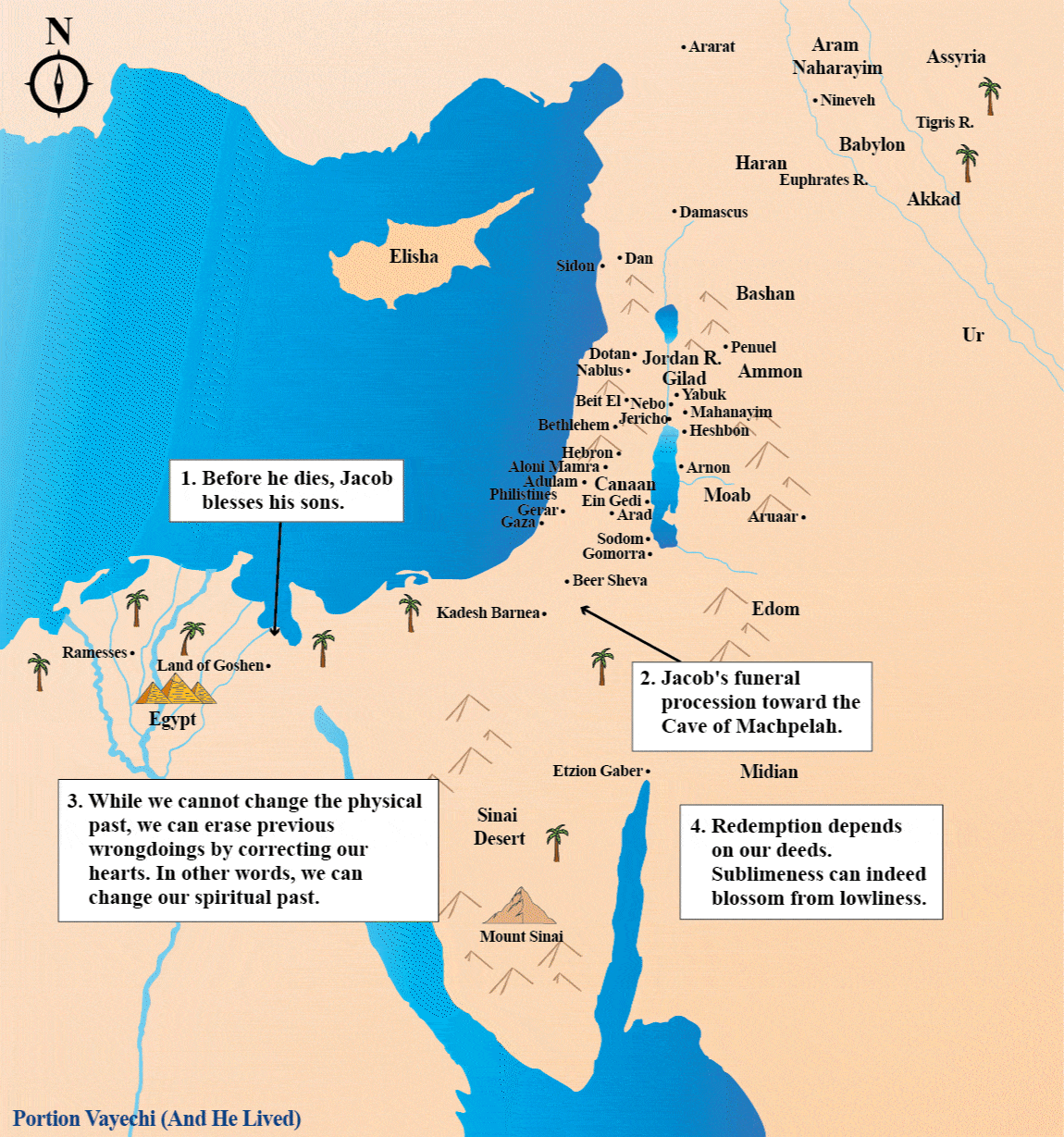
Jacob blesses his sons, says goodbye, and dies
“And Joseph took them both… And Israel stretched out his right hand, and laid it upon Ephraim’s head, who was the younger, and his left hand upon Manasseh’s head, The Angel which redeemed me from all evil, bless the lads; and let my name be named on them, and the name of my fathers Abraham and Isaac; and let them grow into a multitudein the midst of the earth” Genesis 48:13 – 16
- Jacob decides to bless Joseph’s sons first, before giving his own sons their last blessings. This is a testament to the centrality of family, especially in light of the many rivalries and tragedies that our forefathers experienced. From this we see that family is life’s main blessing and the most profound source of spirituality and love in the world. Once Jacob’s family becomes reunited, the nation can be founded.
Jacob grants Judah leadership of the family – the word “Judaism” derives from Judah’s name
“Judah, thou art he whom thy brethren shall praise: thy hand shall be in the neck of thine enemies; thy father’s children shall bow down before thee. Judah is a lion’s whelp: from the prey, my son, thou art gone up: he stooped down, he couched as a lion, and as an old lion; who shall rouse him up? The sceptre shall not depart from Judah, nor a lawgiver from between his feet, until Shiloh come;” Genesis 49:8 – 10
- Jacob equates Judah to a young lion who holds its prey but ultimately lays it down (see Genesis 49:9). This is not to say that Judah cannot seize his prey, but rather that he knows how to restrain himself, overcome his desires, and not crush his opponent. Jacob’s metaphor is a sign of Judah’s modesty and prowess. The analogy of the lion heralds Judah’s leadership, but it is also a warning: if the lion abuses its strength and becomes arrogant, it will be ousted. We must not succumb to the sin of hubris. Judaism tells us that the Messiah – the quintessential king – will come to us riding an ordinary donkey. If we are granted powers, we must sublimate them and act humbly.
Pearls of Divine Wisdom: “He Lived”
- We need not be ruled by fear of death. Through the power of our words, consciousness, positive thoughts, and acts of sharing we reveal a powerful light that banishes darkness and death. Jacob merits immortality thanks to the goodness and light that he bequeaths to future generations.
- Another divine spark vanishes each day – but by means of tikkun (correction), these sparks can be retrieved. That is why the name of this Torah portion – “He [Jacob] Lived” – recalls the life of Jacob, rather than his death. In this Parasha, spiritual sparks are gathered anew.
- The deepest component of spirituality and love in this world is found among family and close friends. When we come together in unity and set aside competition and contention, we lay the foundations for tikkun olam – correction and reparation of the world.
- Though we possess power, whether great or small, we must restrain it and act humbly. We must never allow ourselves to be arrogant. Rather, we should restrict our urge to dominate others, whether in word or in deed, and choose humility – always.
- Although we cannot change the physical past, we can erase previous wrongdoings by correcting our hearts. In other words, we can correct and change our spiritual past.

Affability is recognizing that all of creation is good, enabling us to enjoy life and the people around us.

